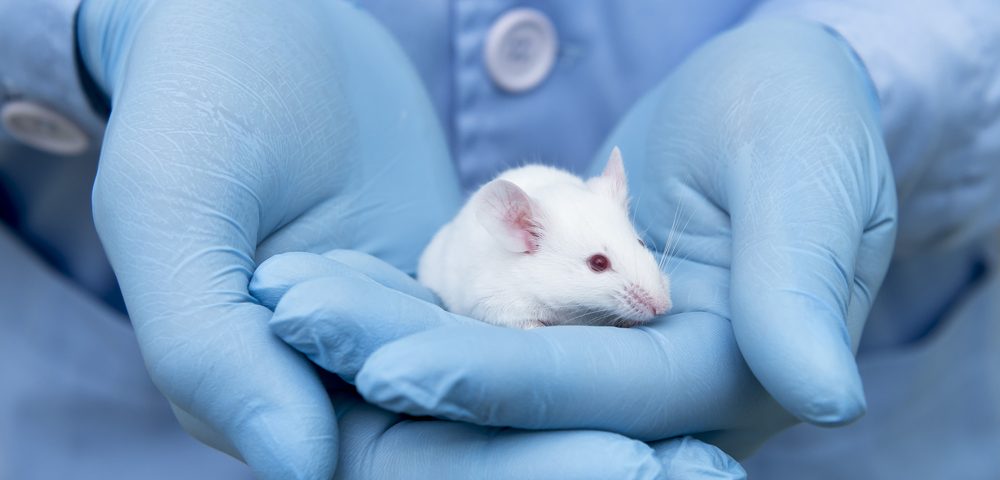By blocking a key player in gut inflammation, a molecule called interleukin-1α (IL-1α) was highly effective at reducing disease severity in a mouse model of inflammatory bowel disease (IBD), a recent study showed.
This finding may pave the way for the development of new biological therapies for people with IBD, the researchers believe.
The study, titled “Neutralization of IL-1α ameliorates Crohn’s disease-like ileitis by functional alterations of the gut microbiome,” was published in the journal Proceedings of the National Academy of Sciences.
Crohn’s disease and ulcerative colitis are the two most common forms of IBD, which affects about 3 million adults in the U.S., according to the Centers for Disease Control and Prevention (CDC). The condition develops due to abnormalities of the gut microbiome and the intestinal immune system. The gut microbiome refers to the population of microbes — bacteria, fungi, and viruses — that live within the intestine and have a crucial role in the proper functioning of the digestive system. Alterations to the gut microbiome are associated with IBD.
In an effort to understand more about the disease, researchers are looking to identify factors that contribute to its development. In particular, scientists are interested in the role of cytokines —small molecules that are secreted by immune cells and have an effect on other cells — in IBD.
Among the different types of cytokines, interleukin (IL)-1 family members, such as IL-1α or IL-1β, play a pivotal role in the mechanisms of inflammation. However, only a few preclinical studies have investigated the role of either IL-1α or IL-1β in mouse models of colitis, and clinical trials blocking IL-1 have yet to be performed.
Now, researchers from Case Western Reserve University School of Medicine and their collaborators set out the investigate the role of IL-1α in SAMP mice, which is a mouse model of ileitis, an inflammatory disease similar to Crohn’s.
First, the researchers showed elevated expression of interleukin-1α in the intestine of SAMP mice. They then treated those mice using antibodies directed toward IL-1α.
The therapy significantly improved the severity of established, chronic ileitis and reduced inflammation.
“These results demonstrate that IL-1α plays a pathologic [disease-causing] role in ileitis-prone SAMP mice, and that its specific blockade results in amelioration of disease severity,” the researchers said.
The team then looked at the effect blocking IL-1α had on the gut microbiome. They found that treatment with the antibody led to significant alterations.
In particular, use of the therapy led to reduced levels of the Helicobacter species, previously implicated in inflammation, and increased levels of Mucispirillum schaedleri and Lactobacillus salivarius species, both of which have been shown to protect individuals from IBD.
Interestingly, IL-1α-associated improvement was linked specifically to effects induced by a change in bacterial composition. The researchers found that blocking IL-1α in germfree SAMP mice — which don’t contain the gut microbiome — did not prevent the development of colitis.
“We show that neutralization of IL-1α by a specific monoclonal antibody against murine [mouse] IL-1α was highly effective in reducing inflammation and damage in SAMP mice, mice that spontaneously develop a Crohn’s-like ileitis,” the researchers concluded.
These findings may be of significant value for patients with IBD, who may potentially benefit from future interleukin-1α-based therapies.
“This is one of the first studies, to our knowledge, that links the effect of a specific cytokine, such as IL1, to the gut microbiome,” Fabio Cominelli, MD, PhD, professor of medicine and pathology at Case Western Reserve University, and lead author of the study said in a press release.
These findings provide the rationale for treating patients with an IL-1 antibody, according to Cominelli and his collaborators at Xbiotech, a biosciences company based in Austin, Texas. This group has developed a human monoclonal antibody against interleukin-1α and are planning a clinical trial for IBD patients in the near future.
The researchers note that there currently is no cure for Crohn’s disease, ulcerative colitis, or the other inflammatory bowel disorders, and available therapies are effective in only about half of IBD patients.
“I’m really excited about this study because I started my career three decades ago collaborating with (co-author) Dr. Charles Dinarello, professor of medicine at the University of Colorado, who discovered and cloned interleukin-1 in the early ’80s,” Cominelli said. “Now I have the opportunity to collaborate again with him in this exciting project that has the potential to develop a novel biological therapy for patients with IBD.”

